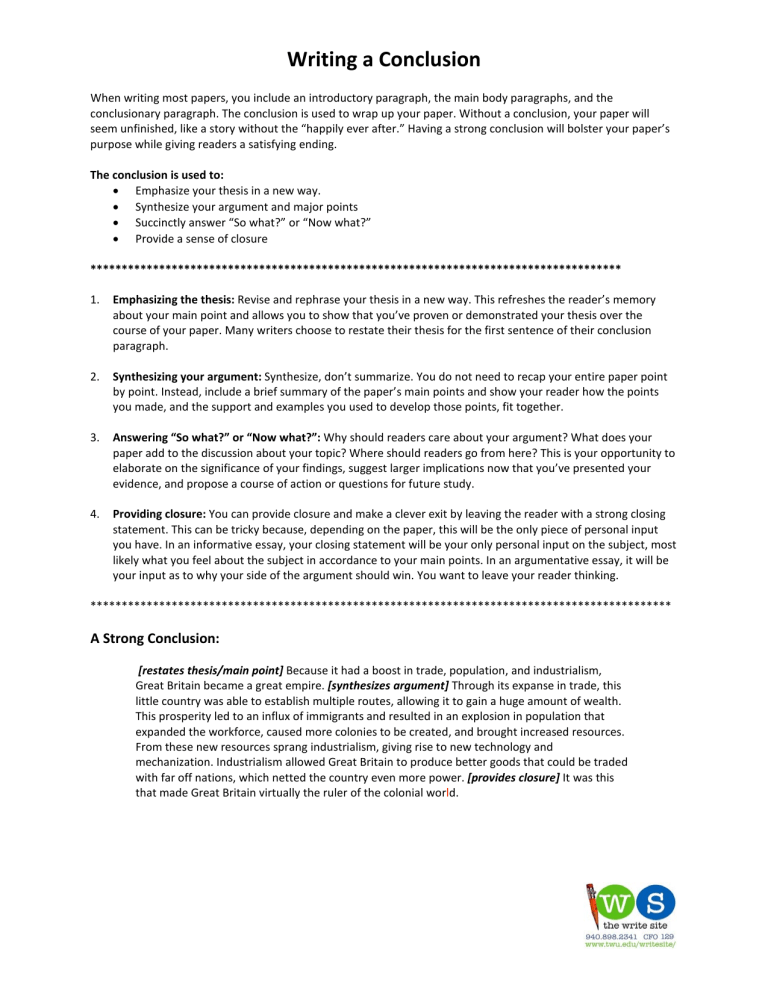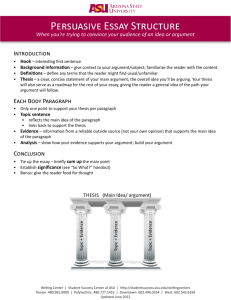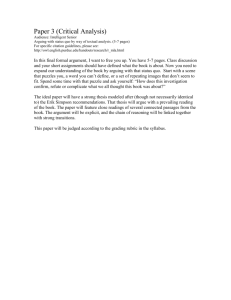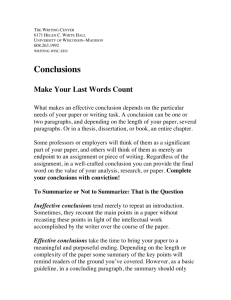Writing a Conclusion

Writing a Conclusion
When writing most papers, you include an introductory paragraph, the main body paragraphs, and the conclusionary paragraph. The conclusion is used to wrap up your paper. Without a conclusion, your paper will seem unfinished, like a story without the “happily ever after.” Having a strong conclusion will bolster your paper’s purpose while giving readers a satisfying ending.
The conclusion is used to:
• Emphasize your thesis in a new way.
• Synthesize your argument and major points
• Succinctly answer “So what?” or “Now what?”
• Provide a sense of closure
*************************************************************************************
1.
Emphasizing the thesis: Revise and rephrase your thesis in a new way. This refreshes the reader’s memory about your main point and allows you to show that you’ve proven or demonstrated your thesis over the course of your paper. Many writers choose to restate their thesis for the first sentence of their conclusion paragraph.
2.
Synthesizing your argument: Synthesize, don’t summarize. You do not need to recap your entire paper point by point. Instead, include a brief summary of the paper’s main points and show your reader how the points you made, and the support and examples you used to develop those points, fit together.
3.
Answering “So what?” or “Now what?”: Why should readers care about your argument? What does your paper add to the discussion about your topic? Where should readers go from here? This is your opportunity to elaborate on the significance of your findings, suggest larger implications now that you’ve presented your evidence, and propose a course of action or questions for future study.
4.
Providing closure: You can provide closure and make a clever exit by leaving the reader with a strong closing statement. This can be tricky because, depending on the paper, this will be the only piece of personal input you have. In an informative essay, your closing statement will be your only personal input on the subject, most likely what you feel about the subject in accordance to your main points. In an argumentative essay, it will be your input as to why your side of the argument should win. You want to leave your reader thinking.
*********************************************************************************************
A Strong Conclusion:
[restates thesis/main point] Because it had a boost in trade, population, and industrialism,
Great Britain became a great empire. [synthesizes argument] Through its expanse in trade, this little country was able to establish multiple routes, allowing it to gain a huge amount of wealth.
This prosperity led to an influx of immigrants and resulted in an explosion in population that expanded the workforce, caused more colonies to be created, and brought increased resources.
From these new resources sprang industrialism, giving rise to new technology and mechanization. Industrialism allowed Great Britain to produce better goods that could be traded with far off nations, which netted the country even more power. [provides closure] It was this that made Great Britain virtually the ruler of the colonial wor l d.







